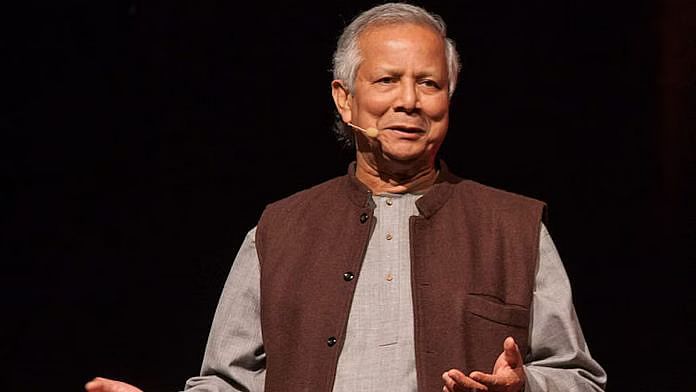The big news out of Bangladesh is that the army is out in full strength on the streets of Dhaka, and Prof Mohammad Yunus, head of the interim government, has dropped hints at resigning from his job. (PTI reported that student-led National Citizen Party chief Nhid Islam was quoted by BBC Bangla Service that Yunus is apprehensive over the evolving political situation in the country and whether he will be able to carry on with his work. “Sir said, ‘If I can’t work. I was brought here after a mass uprising to bring change and reform to the country. But in the current situation, with mounting pressure from movements and the way I’m being cornered, this isn’t how I can work. The political parties you’ve all failed to reach common ground’,” Islam told the BBC. Islam is a key coordinator of the Students Against Discrimination, which led the July uprising last year that forced Prime Minister Sheikh Hasina’s resignation).
Things in Bangladesh are fluid. The official logic for the deployment is that the soldiers are out to safeguard B’desh from the mobs that have been on a spree of looting, dacoity, moral policing of women, and what have you. Everyone agrees that there is a need to rein them in or else the country may slide faster into the kind of chaos being witnessed in many central African nations. The rumours of “Yunus out” started after a meeting between the three service chiefs and Prof Yunus and his top aides earlier this week, which in turn was preceded by a meeting of all divisional commanders and later a public meeting of all serving army officers addressed by General Waker Uz Zaman, the army chief and the man of the moment.
The Bangladesh Army is believed alarmed by not only the country’s descent into chaos, but also by attempts by pro-Yunus forces to take over leadership roles within the army and to subserve the army to a newly appointed National Security Advisor. The army which has not fought any war since independence in 1971, is also unhappy about Yunus’s desire to hand over key ports to foreign firms or nations and to go ahead with a risky plan to grant a supply corridor to the Arakan region through Chittagong to the United Nations and the US which could possibly cause a situation where the Bangladeshi army is drawn into a regional conflict in Myanmar.
But what really forced the army’s hand has been intelligence that Yunus’s supporters – mostly Islamists and students – plan to mobilise mobs after the Friday prayers in mosques in Dhaka to launch a violent demonstration in favour of Yunus and against the army. The Mohammad Yunus regime, which was initially welcomed by many Bangladeshis after it took over in August, is now increasingly unpopular. Bangladesh’s economy, which was the envy of other Asian neighbours, has plummeted. Factories have been burnt down, traders have to pay protection money to multiple strongmen. Dacoities, misbehaviour with saree-clad women, are common. Minorities have had to face the brunt of attacks, killings, loss of jobs in educational institutions and civil services.
The press has been gagged. Hundreds of journalists are either in jail or in hiding. For India, the biggest worry has been the release from jail of a few hundred known terror-linked criminals who are known to be members of proscribed groups like Ansarul Bangla, Hizb ut Tahrir. Their leaders have been seen at many student rallies and they are believed to be regrouping. This remains a potent threat to India – it could open up a second front for the country on its eastern frontier, forcing New Delhi to spend huge resources in augmenting security in the east and the northeast, apart from what it is already spending on its western and northern borders. This could also have ramifications for the larger world as Islamist terrorism has a way of being exported globally once it gains a critical mass in the host nation.
Possibly early elections could help, with the army playing nursemaid. Historically, the two big parties, Awami League and BNP, have about 30 % vote, while the Jamaat and smaller Islamists get about 5-10 % of the vote in any election. Who comes to power depends on which way the undecided 30% swings. However, before an election comes about, the current crisis between the army and the unelected civilian government has to blow over, either with Yunus departing and making way for another interim government or by acceding to the supremacy of the military and holding elections by an early date.
